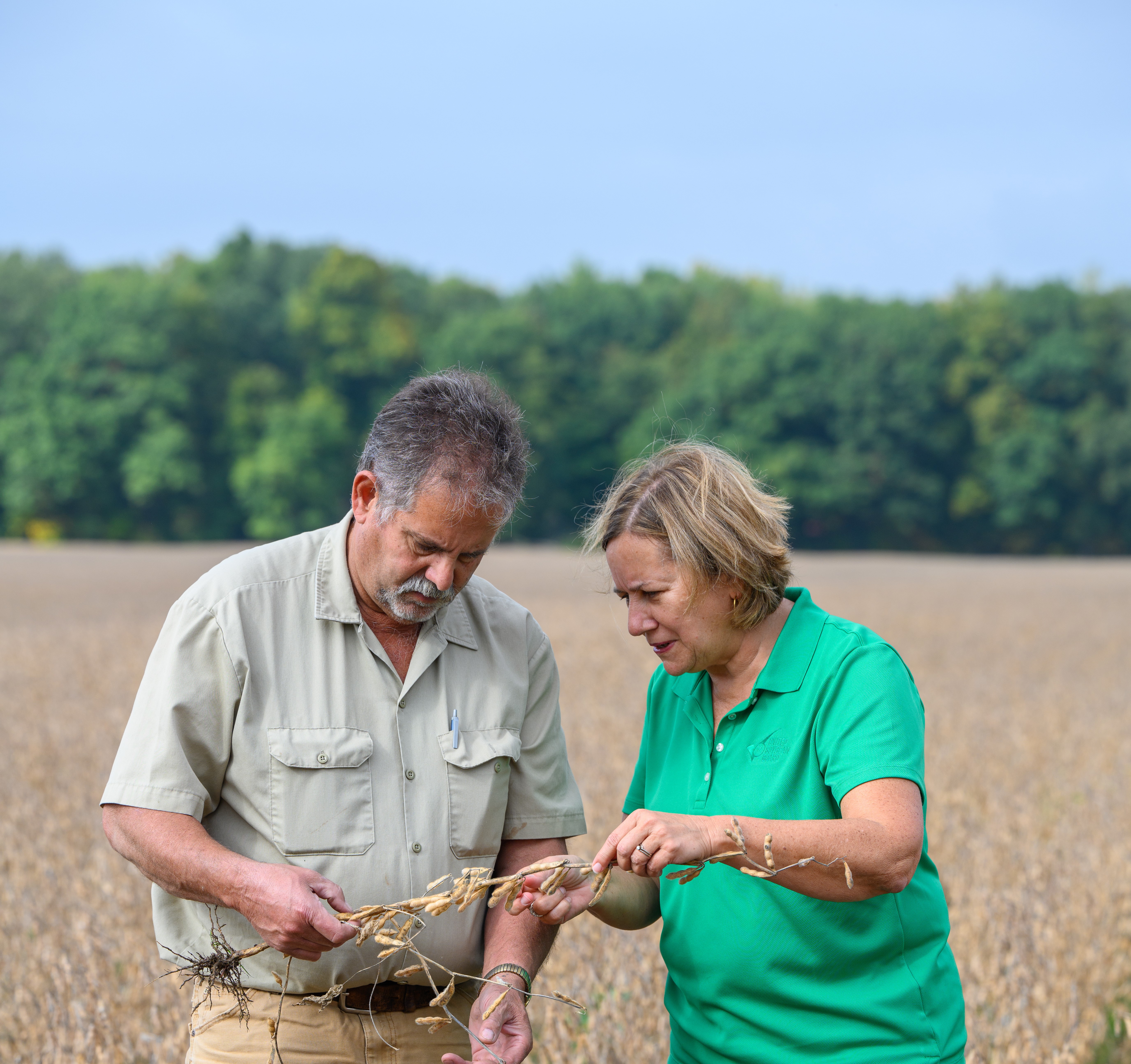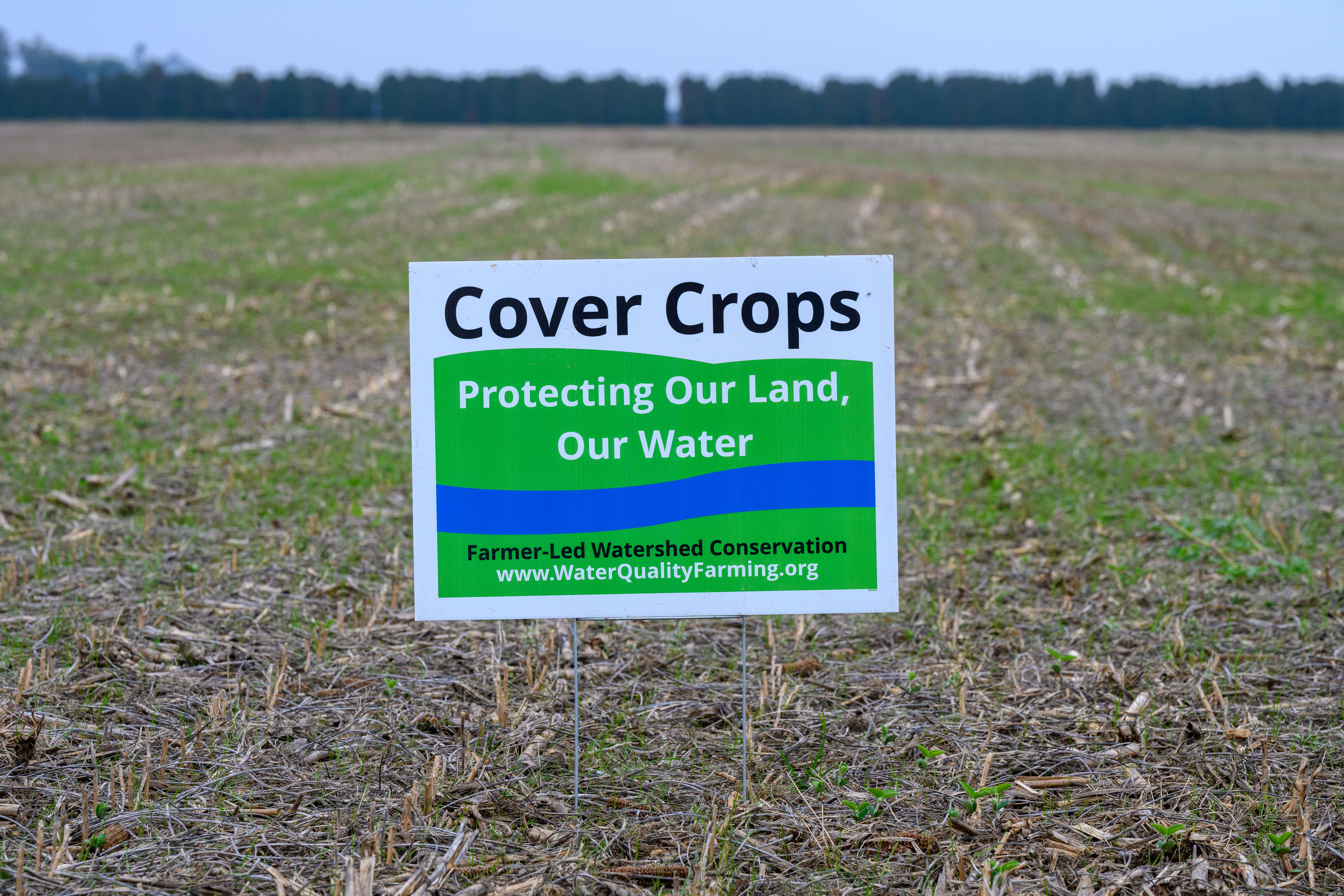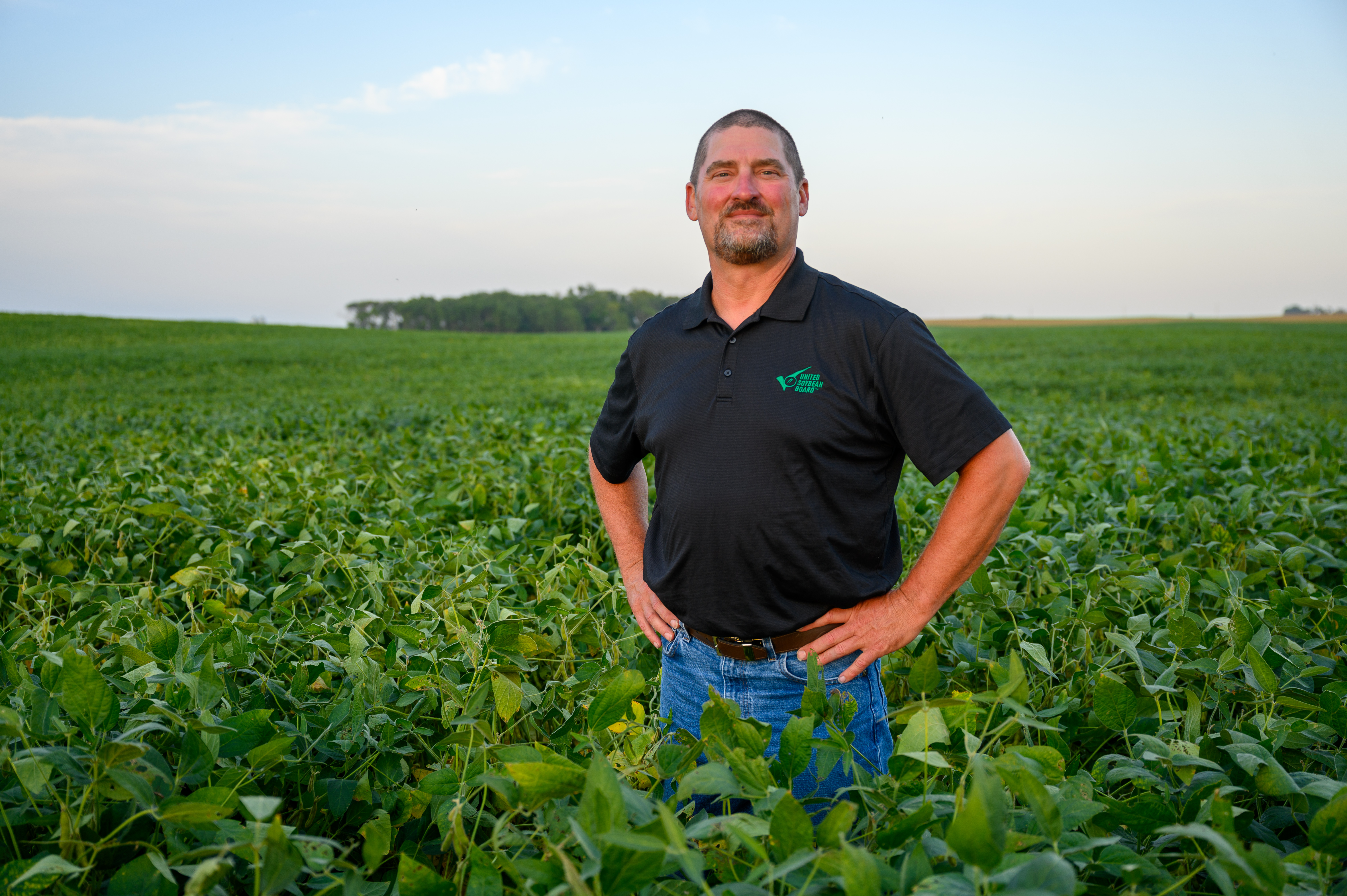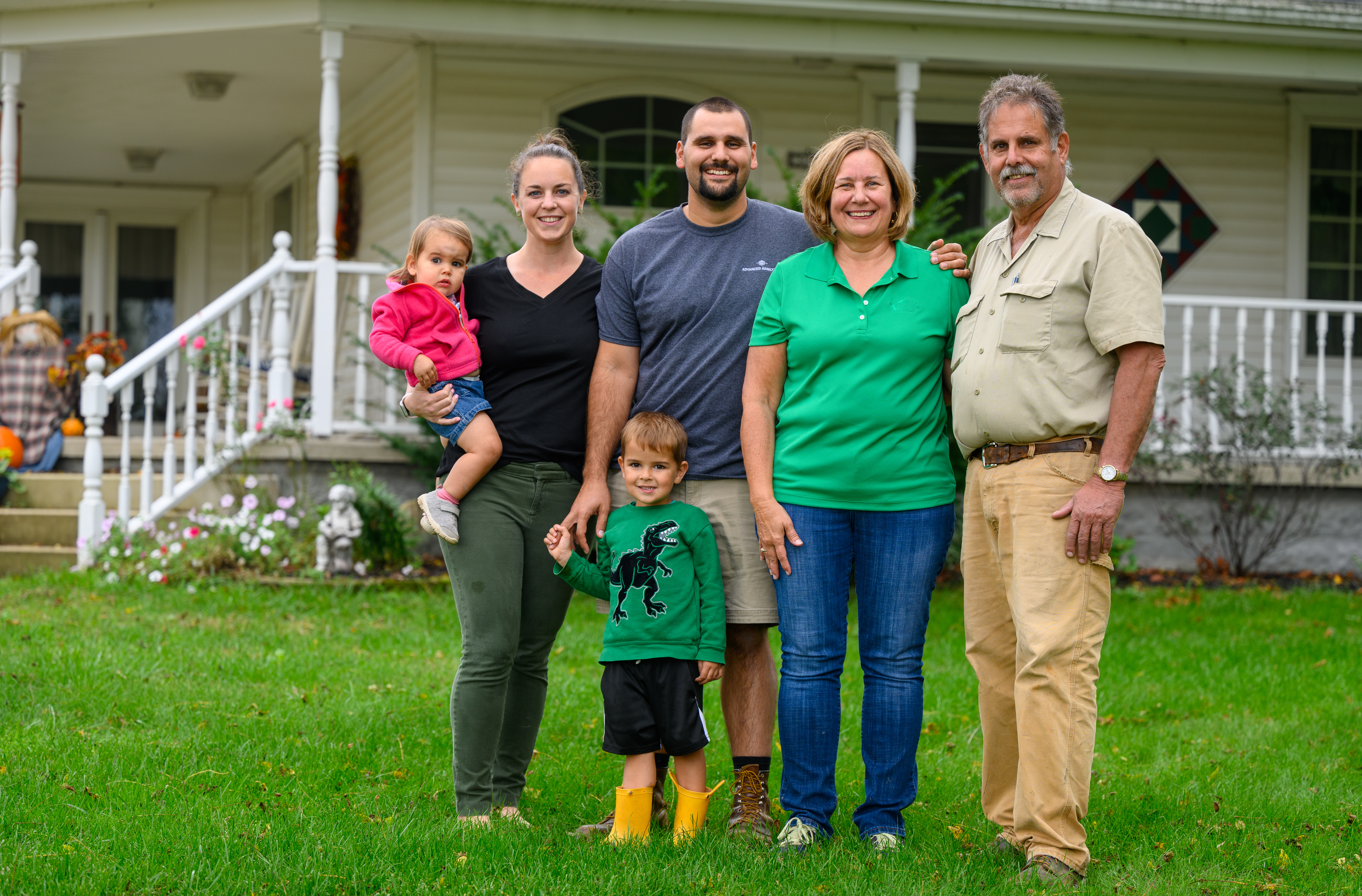Farming for the Future: A Q&A with U.S. Soybean Farmers
For Immediate Release
Tuesday, April 15, 2025When you think of soybeans, you might simply picture tofu or soymilk, but there's so much more to this tiny powerhouse crop. Beyond the grocery store shelves, soybeans play a critical role in sustainable farming, feeding livestock, and even fueling industries with innovative soy-based products.
To get a behind-the-scenes look at how soybeans are grown and the passion that drives U.S. soybean farmers, we spoke with Laurie Isley from Michigan and Tim Bardole from Iowa. These passionate farmers share their experiences, sustainable practices, and insights into the future of soy farming.

Q: Can you tell us about your farms and what you grow?
Laurie Isley: "Our farm is Sunrise Farms. We're located in southeastern Michigan, just north of the Ohio line and relatively close to Lake Erie. We've actually been farming in that area for about 150 years, and my husband and I farm with our son Jacob."
Tim Bardole: "I farm in central Iowa. We raise soybeans, corn, hogs, and have a small cow calf herd. I farm with my father, my brother, and my son."
Q: Why do you love growing soybeans?
Laurie Isley: "Soybeans are a great crop to grow in conjunction with corn, and that's a really common combination. When you can rotate your crops and do one crop one year and the next crop the next year, it's just much better for your soil. And we're really conscious of soil health. The more you learn about how many different ways soybeans can be used, the more exciting it is to really just be a part of the production of that product."
Tim Bardole: "I love growing soybeans because it is a seed like no other. It has so many uses in the world, not only for human food but also livestock feed, oil, fuel, and industrial uses such as in some paints, firefighting foam, and asphalt. There is no other seed or ag product in the world that can be so varied in its uses."
Q: How do you implement sustainable practices on your farm?
Laurie Isley: "We have a multitude of sustainable practices that we use on our farm. We're very flat and very sandy, so one of our major concerns was wind erosion when we first started looking at farming with a conservation mindset. We use no-till, which means we don't do any extra tillage of the soil. We also use filter strips along all of our waterways and put in water retention structures. Probably one of the things that's most important that we do is regular soil testing to help us make decisions about what we apply to our soil."
Tim Bardole: "On our farm we've been no-till for over 30 years, meaning we do not till up the soil; we plant into last year's residue. That keeps the soil stable and is actually healthier for the soil, for the microbes in the soil to make the nutrients available to the crop. We also use cover crops, which is a soil health and water quality tool that utilizes any free nutrients in the soil when there is no crop growing there to uptake it."

Q: And why is sustainability so important to you?
Laurie Isley: "We’re fifth-generation farmers, and we farm with our sons. Sustainability is about ensuring our farm’s legacy for future generations. Land isn't something they’re making more of, so we take our responsibility to protect and enhance it very seriously."
Tim Bardole: "For me, sustainability means protecting the resources we have. In our case as a farmer, it's making sure that we can farm in a way that not only protects the soils, the water and the environment, but also be able to make enough money to farm the next year. We are always looking for the next generation, trying to make our farms better for our kids and grandkids.
"Land isn't something they’re making more of, so we take our responsibility to protect and enhance it very seriously." - Laurie Isley
Q: What kinds of technology do you use on your farm?
Laurie Isley: "We have the technology that we can actually do what we call a prescription, which is unique to our monitors. Our soybean planter and our sprayer will actually change as it's going across the field. We sometimes call it farming by the inch instead of farming by the field. It helps us reduce waste and be more efficient."
Tim Bardole: "We use GPS auto-guidance on our equipment. Our sprayer, tractors, and combine use satellite signals to steer, so it steers within a three-centimeter path. It keeps it very precise and eliminates fuel waste by overlapping herbicide or other things we spray on the crop. It’s really improved efficiency and accuracy."
Q: GMOs are a hot topic and many people have concerns or questions about them and their impact. Could you clarify what genetic modification means in the context of soybeans and how it benefits your farm and consumers?
Laurie Isley: “Genetically modified organisms (GMOs) have been around forever. I think a lot of people misunderstand how much more detail oriented we can be by using genetic technology— we’re able to change just one thing about a seed rather than change a lot of things about a seed. We've had them commercially for well over 20 years now with no reported issues.”
Tim Bardole: “All it is changing a few genes and turning on, turning off. So whatever that gene, whatever it's going to bring out in the plant, it'll turn it on or turn it off. Instead of having to wait for 50 years (through traditional breeding), we can get these new products in a year or two.”

Q: How do you balance the benefits of GMOs with individuals' concerns? And what message would you like to send to consumers?
Laurie Isley: “Listen to the research and don't be afraid to talk to the farmers. They're not going to do anything to harm consumers. We're here to produce a quality and safe product for you, and we take that responsibility very seriously. And so we want to look at it as a step forward rather than something that is a frightening misconception.”
Tim Bardole: “GMOs are very important to us and to agriculture around the world. By having GMO soybeans, I won't have to worry about the residue of the spray because of the safer sprays we are able to use.”
Q: What is something you wish consumers knew about U.S. soybean farmers?
Laurie Isley: "I would hope that the public would recognize that U.S. soybean farmers are dedicated to their craft and that they care about the product they’re producing. Their goal is to have a profitable crop for their family, but even more importantly, we take pride in the role we play in agriculture."

Tim Bardole: "U.S. soybean farmers care. We are family-run operations. We farm land that has been in the family for over 120 years, and I wouldn’t do anything to hurt that ground. I want my grandson to farm that ground someday."
"U.S. soybean farmers care. We are family-run operations. I farm land that has been in the family for over 120 years, and I wouldn’t do anything to hurt that ground. I want my grandson to farm that ground someday." - Tim Bardole
From sustainability to innovation, U.S. soybean farmers are paving the way for a more efficient and environmentally-friendly future. Their dedication to their land, families, and communities ensures that soy continues to be an essential part of our diets and industries.